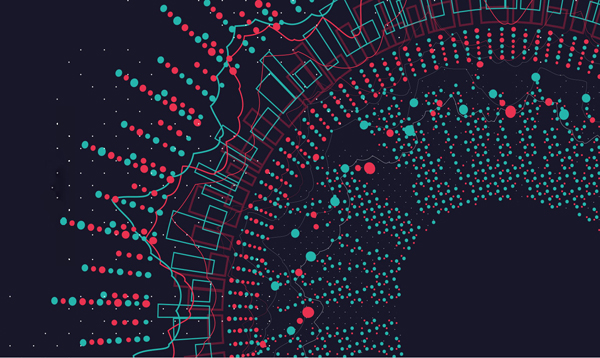DATA ANALYTICS
ENTER THE NUMBERS GAME
Nicola Walsh finds out that the internet is channelling people’s ambitions
Following the advent and development of the Internet of Things, we now have a window to the world like never before. With the extent of communication that infiltrates our daily lives, it’s impossible to remain oblivious to the issues beyond our own communities.

Today, we’re all global citizens no matter where we live or work. With the aid of mobile devices, we can listen to Michael Jackson in the middle of the Cambodian jungle, watch boatloads of migrants wash up on European shores as we sit in our living rooms and find recipes for dhal curry while holidaying in China or some remote part of the planet.
Location is no longer a barrier to information. Knowledge, which once had to be painstakingly researched in the boring confines of a dusty library, can now be sourced while at home – by any search engine and in a matter of seconds.
No longer do we need to trawl through pages of unnecessary reading before we find the nugget of information we’re seeking. A machine will source the most relevant passage based on our search and we can all become Google scholars in a matter of seconds.
However, it’s critical that we seek the truth, sift fact from fiction and start to think critically. We have windows into worlds that are selected for us, and we’re presented with a vision that’s biased and predetermined. The use of social media platforms to harness millions of people’s motivation, desires and interests is now far more sophisticated.
For instance, well-established business practices are being disrupted using new online applications. The practice of seeking a small number of shareholders to invest large sums of money on a proposed venture has been turned on its head.
Crowdfunding persuades large numbers of people who are accessed through online platforms to donate small sums of money. As the amount they invest is small, they aren’t taking a risk and in most cases, such investors seek no return – it’s more like a donation. It’s a win-win for the venture capitalist, and it sources money for worthy causes like charities as well as individual do-gooders.
The property market has been transformed by the introduction of online brokers who receive a commission for the services they promote. Airbnb doesn’t own or manage real estate and doesn’t have a high street presence. It’s an online marketplace that allows millions of homeowners throughout the world to advertise space for lodgers and easily connect with strangers around the globe in a relatively safe environment.
Airbnb has another programme – a home improvement television show called Open Homes where a homeowner can offer free or extremely low-cost housing to uprooted people like refugees or the internally displaced. Its website claims that over 30,000 individuals have found temporary housing thanks to hosts on Open Homes.
Politicians now seek to access millions of voters by carefully timed and selective use of images and information on social media. President Barack Obama’s election in 2009 brought the internet and community together for the first time. Millions of citizens are now exposed to politicised information that can mobilise hard to reach and disengaged sections of society that are online.
However, most people who look for information on social media tend to actively seek only their own preferences, as if to reassure themselves that their view is right. During Donald Trump’s election campaign, he had more fans and followers on Facebook, Instagram and Twitter, all posting likes, comments and shares – and they successfully promoted his message at no cost to his election budget.
Digital elections are vibrant and are playing an unprecedented role in political campaigns. Because of big data, politicians have instant access to information on billions of people and the like-minded ones are then bombarded with messages they want to hear to consolidate their views.
Not only do the large numbers on the internet help political parties realise substantial financial gains from crowdfunding and mobilising previously inactive sections of the population, they also provide free publicity.
In the recent local election in Moscow where many opposition candidates were banned and protesters jailed, political activist Alexei Navalny used YouTube to engage with Russian voters. He persuaded large numbers of internet users to vote smart and for a stronger alternative. Navalny launched a website (it was later blocked by the authorities) where users could enter their address and the computer would determine
the best candidate to achieve a desired outcome.
The application of the internet to channel billions of people’s desires, interests and ambitions is becoming smarter and more creative. A million users do matter and if targeted appropriately, they can change the way we live and work.




